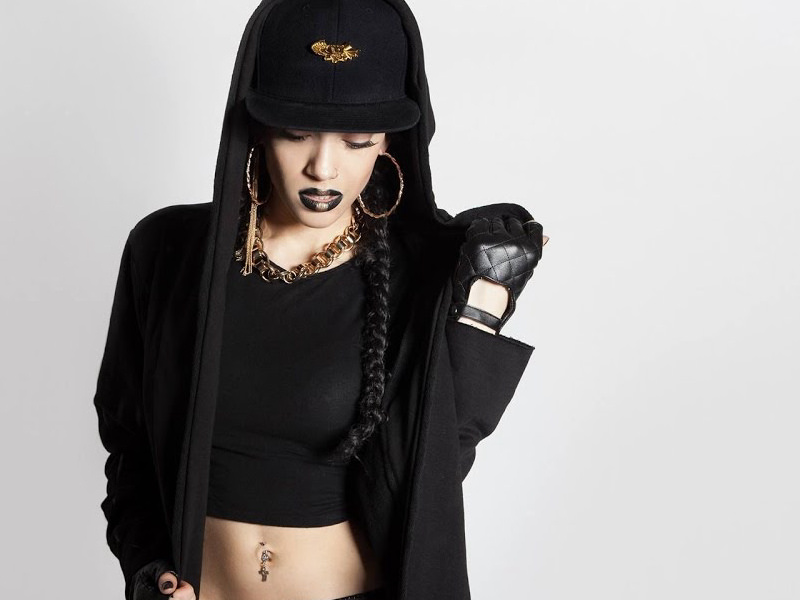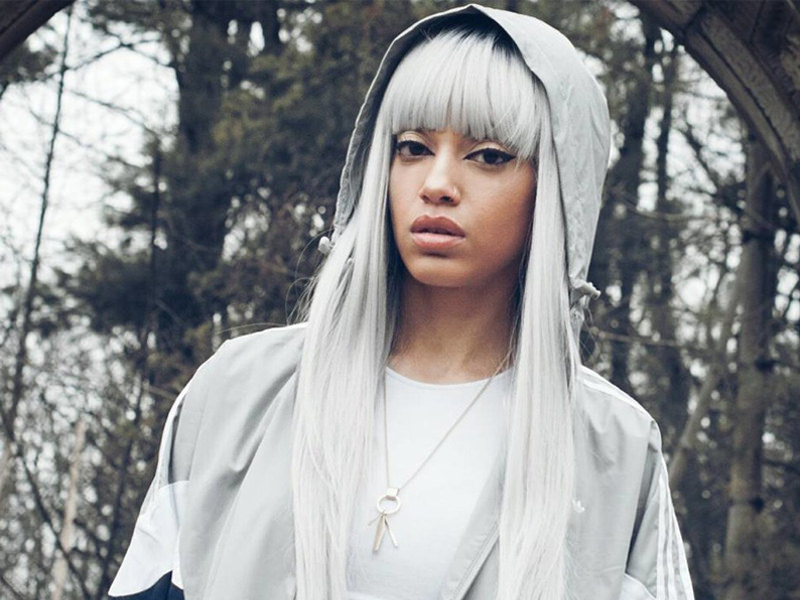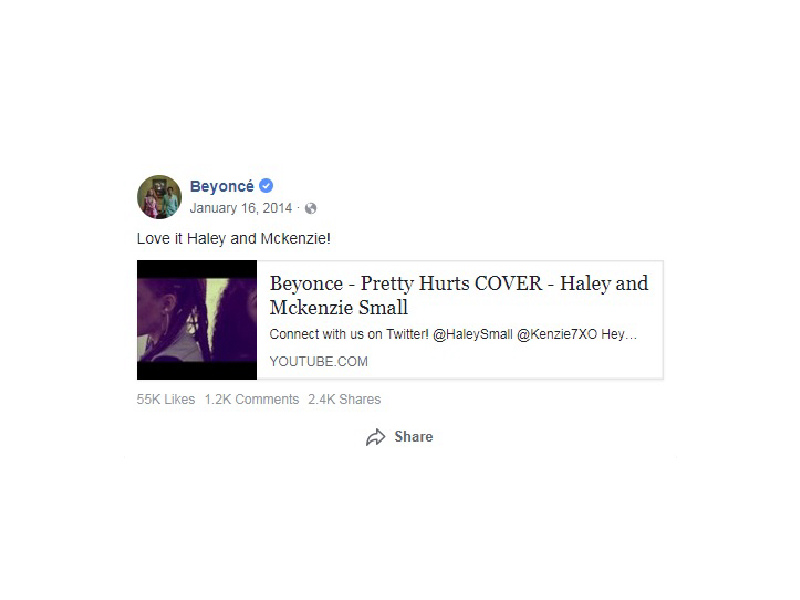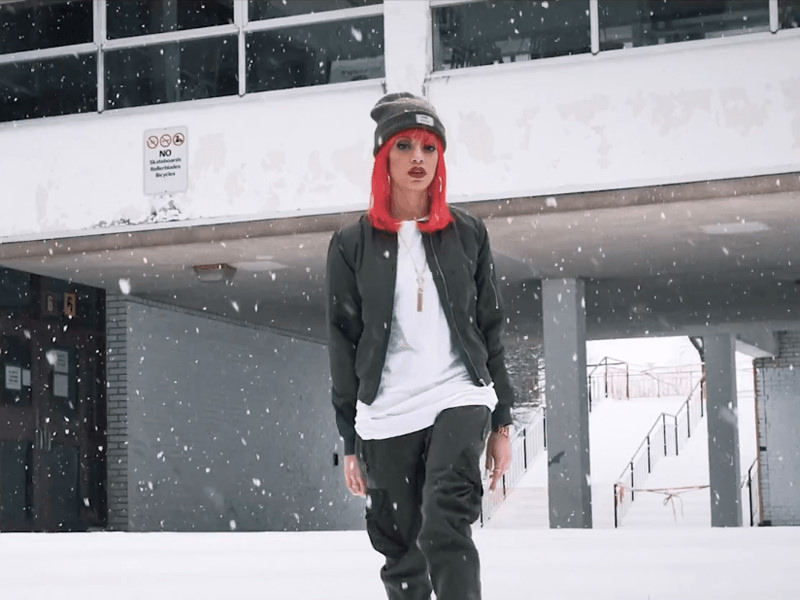|
By Amin Fereg Transcribed by Tashia Antoine Haley Smalls is a young and upcoming artist hailing from the 6ix. She reps it well as a beautifully talented singer, songwriter and engineer. Smalls became an overnight sensation when Queen Bey Beyoncé shared Haley’s cover of Pretty Hurts on her Facebook page back in 2014. Since then she has been honing her craft as a singer, songwriter and engineer. Her collaborative vibe with respected producer MegaMan, creates a charismatic R&B sound that is distinctively hers. In this Northern Touch interview Correspondent Amin Fereg discusses with Haley Smalls the challenges of breaking into the industry as an independent artist, her latest project The Cure II and more. © Haley Smalls | YouTube Amin: Haley, tell the listeners about yourself. Who is Haley Smalls? Haley: Well, I am an artist. I do R&B and urban influenced music. I’ve been doing music for a long time…since I was a kid, really. I’ve been working in the industry for a while and over the last four years I've kind of been developing my sound and really trying to follow a direction that I feel is true to myself. That’s kind of where I’ve been at for the last four years, and working with my producer and just releasing a lot of music over the past year especially. Amin: So, how did you get your start as a musician? Haley: I was singing since I was five years old. My parents kind of recognized that I had talent. So they were pushing me and supporting me ever since I was a kid. Then I started working with different management companies in the States. I got into some bad record contracts, but I got a lot of experience over the years through that. I was in the studio since I was twelve years old. It just kind of unfolded over the years. I’ve worked with a lot of people in the States, a lot of big names in the industry. I learned a lot. So I've just been kind of making my way ever since. Amin: What would you say those experiences in the States taught you early on in your career? Haley: It taught me a lot. Musically, it really just developed my talent and my sound and stuff like that. It definitely taught me a drive. Growing up I think in that era is a little bit different than now. The development of artists was a really big thing back then, and I got that, which was dope. I’m really thankful for that. In terms of industry, I think one of the main things I realize is that it doesn’t matter who you work with, name wise, it really more so matters about who believes in you and the chemistry that you build with somebody. Amin: Growing up, who would you say were your main influences to become a musician? Haley: Definitely Mariah Carey, Brandy, Toni Braxton, BlackStreet, Michael, Janet, those are the main ones. Then as I started to get a little older, I started listening to Erykah Badu and Lauryn Hill. I started to really get into Aaliyah, stuff like that. © Haley Smalls | YouTube Amin: What was it about those artists that really influenced you in a sense? Haley: I guess the songs, the melodies, the tone of their voice. Nobody in my family sings but my parents played music all the time in the house. My mom still does it, she plays music constantly. Always. I don’t know anyone who plays music as much as she does. When I was growing up my influences definitely kind of revolved around what she was listening to. I really loved the melodies. A lot of records that those artists have, are classic records. They stand the test of time. I don’t know, I just loved it growing up. Amin: I’ve seen online that a few years back, one of your videos along with your cousin was re-posted by Beyoncé. At the time, were you an independent artist? Haley: Yeah, I wasn’t signed to a label. I was signed to DTP management. That’s Ludacris’ Disturbing the Peace. They were managing me at the time. But I was just doing covers on my YouTube channel and I had built up a following on YouTube by that point by doing my covers. My cousin has been singing since she was little too, and I was really trying to get her into it. I could tell that she loved it, so we just started to do covers. That was like the first one we did and it was weird. It gained a lot of traction on its own and then all of a sudden Beyoncé posted it and the views skyrocketed after that. Amin: What would you say that type of recognition does for an independent artist? Haley: Honestly, it doesn’t do that much. The views get you some recognition and obviously, at this point, it has around 1.6 Million views. But in terms of your original artistry… it’s a cover. It doesn’t really introduce people to your own music. That was the thing I had to break out of. Because a lot of the people that I gained as fans back then were really used to hearing me do covers and they loved the covers. I had to break into getting people to love and recognize my own music. It’s a lot easier to put out a cover on YouTube. People are already searching for covers. They're are already searching for Beyoncé,. But when you put out your own record, it’s only going to get, like, 200 views. So you’ve got to like actually build yourself up to people actually becoming fans of you and your artistry. That’s what I’ve really been kind of building this year especially, and over the past four years I’ve been developing my own sound. Then the last year, I really just started to get my music out there, push it, promo and marketing to actually get a core fan base. © Haley Smalls | YouTube Amin: To those that haven’t heard your music before, how would you describe your sound to a first time listener? Haley: It’s definitely mainstream. Obviously it has urban influences. A lot of hard drums. Melody based. It’s always hard for me to describe my music. I feel like other people could describe it better than me to be honest. Amin: I’ve also read online that you were a part of the writing collective, The Starters. Haley: Yes, but that’s disbanded now though. Amin: Earlier on when you were apart of that, how did that play a role into your own personal musical career? Haley: It helped a lot. My producer MegaMan was the person who started that writing group. When I first met him, he was just really interested in creating a writing group. Making dope records and chopping them. It was me and a couple other people and we would just write from scratch. It was really dope. It was a dope process and it taught me to feel comfortable writing around people. It really taught me to polish my writing skills. Being in a room with other people who write and are good at different things - everyone has got their own different skills- it forces you to become better. It was almost like a friendly, competitive thing, which was really dope. It definitely helped me become better. It was a good experience. Amin: You mentioned your producer MegaMan. So he produces a lot of your records. How is it working with a producer of that nature? Haley: It's dope! Honestly, for the majority of my career before I met him I was working with a lot of different producers. Whatever management company I was with would pair me with different producers, or even when certain producers would hit up my email and send me beats, and I would just work with them and write songs to their beats. But you don’t really find your sound that way. It’s hard to find your sound that way. I think maybe some artists can but it is definitely harder. So building with one producer, especially someone like him (MegaMan) because he has a really good vision for developing artists, and patience. A lot of producers just want to work with an artist for maybe just a couple of months, bang out ten songs and expect to get the artist a deal and cut a cheque. Amin: It's like a small end game. Haley: Yeah, it's just to cut a cheque. I get it, I know the industry has become a lot more fast paced now but that doesn’t create superstars. If it were not for the development that Whitney Houston had, Mariah Carey had, Michael Jackson had…that any of these people had, they would not have become what they became. That’s why you see a lot of artists today only go so far. It's not because they don’t have the talent. It’s not even because they don’t have the potential. It’s just because they don’t have the support and that patience and that development, that people used to take with artists to really hone in on their skills and let them develop on their own naturally. I feel like I’ve grown a lot just from us (MegaMan) working together, building the chemistry. Now it's just so easy to work, because we just know. He knows me. I know how he works and its just easy. © Haley Smalls | YouTube Amin: Let’s talk about your most recent project that was released earlier this spring, The Cure II. Can you tell listeners where you got the inspiration for that project? And what were you hoping for listeners to get out of that project? Haley: Well, The Cure is a series. The first Cure was released a little more than two years ago. The Cure is meant to be more of an emotional based series of mixtapes. It hones in on emotion, sonically and lyrically as well. That’s definitely what I was trying to capture. Obviously as time goes on, the sounds will change a little bit because music modernizes every few years. But we still wanted to keep that emotion based music in that mixtape, and that project. It’s called The Cure, it’s is supposed to cure you of your sadness or emotion or whatever you’re going through. Just make you feel better. That's really what I wanted people to get from that. Amin: What was the process in creating, one of my personal favorites on the album, J.U.I.C.E.? Haley: The process is similar for us. For most records we work from scratch. So, Mega will start a beat and I just let him do his thing, because a lot times when he starts a beat, the way it starts and the way that it ends up is completely different. When he’s done, we just come up with melodies and then we figure out a concept. Then I‘ll write lyrics and we’ll just go back and forth. It’s a really dope collective, vibe when we’re writing. That was really the process. I don’t know, it’s just supposed to be a fun record. © Haley Smalls | YouTube Amin: I can see that! A lot more energetic than the other ones. The other ones, for me personally, were emotional so J.U.I.C.E. tapped into something different. It was like a break from that. Haley: We definitely wanted to put some fun records on there. We didn't want the whole mixtape to be just crying in your bed. Haley Smalls is an exceptional talent that is well on her way to earning her place at the top of the charts. As a force to be reckoned with, we look forward to the stories she tells through her eyes and music.
Stay tuned for Part 2 of this interview with Haley Smalls, where she discusses her latest single Dopamine, as well as navigating the industry as an independent artist. You can connect with Haley on social media. |
Recent PostsCategories
All
Archives
December 2021
|
|
GET THE APP!
Listen to VIBE 105 anywhere you go!
|
OUR STATION
|
TUNE IN RADIO
|
STAY CONNECTED
|
Copyright © 2021 Canadian Centre for Civic Media and Arts Development Inc. Except where otherwise noted, presentation of content on this site is protected by copyright law and redistribution without consent or written permission of the sponsor is strictly prohibited.








